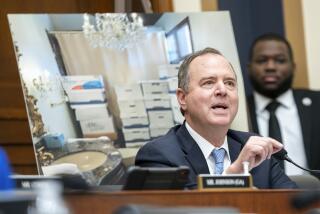Opinion: Another result of Tuesday’s election: fewer ‘Blue Dog’ Democrats
The U.S. Senate just got a lot more conservative. But its Democratic caucus just got a lot more liberal.
How’s that again?
The little-examined flip side to this week’s Republican victories is that they swept out many of the last remaining “blue dog” Democrats in the Senate – the centrists from conservative-leaning states who leavened a caucus dominated by urban liberals.
Among the Senate’s most moderate Democrats, two lost their seats on Tuesday: Mark Pryor of Arkansas and Kay Hagan of North Carolina. Two more appear likely to lose once the counting is over, Mark Begich of Alaska and Mary Landrieu of Louisiana. Another, Max Baucus of Montana, retired.
As a result, the Senate – once Washington’s last refuge for centrist politicians – increasingly resembles the polarized, partisan House of Representatives. There are fewer and fewer moderates in either party; the vast majority of senators are either conservative Republicans or liberal Democrats.
The Senate is increasingly polarized in regional terms, too. The South is now entirely in Republican hands (except for Virginia and Florida, whose electorates include millions of northern transplants). The 19 inland states from the Sierra Nevada to the Mississippi (with 38 seats in the Senate) will send only nine Democrats next year, down from 15 two years ago.
Next year’s Democrats won’t just be mostly liberals, they’ll almost all come from either the north or the Pacific Coast. Liberal senators from those states – Dick Durbin of Illinois and Cory Booker of New Jersey, for example – had little difficulty keeping their seats in Tuesday’s election, despite the Republican tide.
So while Tuesday’s election was clearly a victory for Sen. Mitch McConnell (R-Ky.), it also created a problem for the Republican leader. In the Senate, most legislation needs 60 votes to advance, but McConnell’s GOP majority will number 55 at most. When he wants to pass a bill, who’s he going to call? There are fewer moderate Democrats for him to work with. (Not to mention the pickle he’ll be in if conservative rebels such as Sen. Ted Cruz of Texas refuse to vote his way.)
That means some of the most powerful Democrats in the next Senate will be six people most Americans have never heard of: the last remaining centrists.
Joe Manchin of West Virginia, Joe Donnelly of Indiana, Claire McCaskill of Missouri, Heidi Heitkamp of North Dakota, Jon Tester of Montana and Mark Warner of Virginia are about to get a lot more popular – inside the Senate chamber, at any rate.
Follow Doyle McManus on Twitter @doylemcmanus and Google+
More to Read
A cure for the common opinion
Get thought-provoking perspectives with our weekly newsletter.
You may occasionally receive promotional content from the Los Angeles Times.







